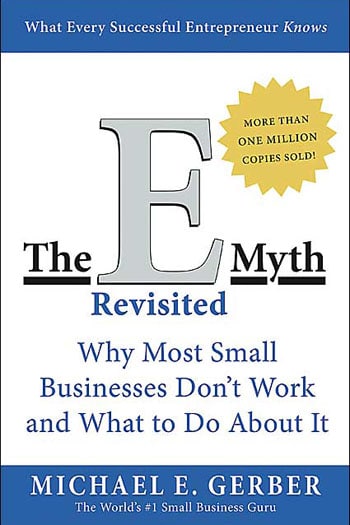Mastering the Discipline of the Financial Leader: A 2025 Perspective

Michael Gerber said it best in E-Myth Mastery: “There is nothing in the creation and operation of a company that so seemingly conspires to confuse, intimidate, overwhelm, complicate, rationalize, and metastasize the plain ignorance of the average business guy, or woman, than money” (p. 172).
But why is that still true today? Because as humans, we overcomplicate even the simplest things. It can’t possibly be that easy, we tell ourselves. But understanding your financials is not only achievable, it’s essential. As we dig into the discipline of the financial leader, let’s get one thing clear: money is meaningless without people, just like business is meaningless without people.
The Discipline of the Financial Leader
Over the past 25+ years, The Strategic CFO has made it our mission to convert number crunchers into financial leaders. Anyone (relatively speaking) can account, but it takes someone specific to be a financial leader. The financial leader is simply that, someone how leads the company financially. But it’s often difficult when you have multiple leaders in the company without a focused vision or goal. Thus, Michael Gerber expands that “to the degree the enterprise leader is clear about her vision, the financial leader can build a financial model of that vision…” (174). That being said, you need to be in constant communication with your entrepreneur, CEO, and executive team. Sometimes the best conversation is where the financial leader is listening. That communication will transform you from a financial guru to a leader – where you need to be if you’re going to succeed. Knowing your economics or financial statements is just the first step to becoming a disciplined financial leader.
When you discipline yourself to knowing your economics (or financials), knowing your cash position (balance sheet), knowing how every decision impacts the bottom line, you will find yourself leading the company forward. The basics are critical. Often, we find that accountants, Accounting Managers, Controllers, CFOs, etc. are only concerned about the costs. But they also need to be involved in the sales and operations of the business. There shouldn’t be a day that you as the financial leader do not think about the entire business.
Knowing your economics is just the beginning. When you discipline yourself to:
- Know your financials
- Know your cash position
- Understand how each decision impacts profit
You naturally begin leading with greater impact.
Often, finance professionals stay in their lane. They focus only on costs or closing the books. But finance does not operate in isolation. Sales, operations, and marketing affect your numbers. You need to understand those functions, too.
A best practice we’ve used for years: get out of the office. Walk the plant. Visit the field. Spend time with manufacturing or customer service teams. Some of your best ideas will come from those conversations.
Knowing Your Economics
It sounds simple. But do you really know your numbers?
Many leaders don’t. Not the CFO, not the CEO, not even the COO. We’re talking about unit economics: the revenue and direct costs associated with a single unit. Look at the following example for a simple unit economic breakdown:
Revenue $10 – COGS $3.5 Gross Margin $6.5
You need to understand this for each product or service. That includes allocating SG&A when applicable. Ignoring these costs leads to false conclusions, flawed decisions, and ultimately cash flow issues.
If you can’t do this type of cost analysis, your income statement is likely misleading. You may also lack a proper costing system in your facility.
Once your financials are accurate, they only create value if they are timely. Statements delivered 30 or 60 days late are almost useless for decision making. Discipline includes speed.
Improves Decision-Making
Understanding your numbers improves your decision making. If you know your margins, you know when a cost will make or break profitability.
Using the example above, if you plan to implement new sales software that adds $7 in cost per unit, you are instantly unprofitable. Unless the sales team can show how that investment will increase unit volume and reduce per-unit cost, the answer should be no.
Financial leaders must express this clearly to other departments. You are not the “no” person. You’re the “let’s make sure this works” person.
Expands View of Business
When you know the economics, margins, and financial position of your business, you are able to see a lot more. It’s the basics of doing business – much like eating and exercising. You need it to remain healthy.
When you understand your company’s economics, you begin to see beyond finance. You recognize the impact of decisions in marketing, operations, HR, and beyond.
This is how financial leadership becomes a cultural asset. When the entire team understands how their actions affect profitability, they make better choices. Over time, you build a company that thinks strategically, not reactively.
We see this even with our interns. Every summer, they start with a crash course in unit economics. By the end of the internship, they are making observations and contributions that long-time staff may have overlooked.
Financial leadership is not about theory. It’s about practice. It’s discipline in action.
If you’re ready to lead, it starts with knowing your economics.
Weather Storms or Sunshine
Unfortunately, recessions roll around occasionally. Economic crisis is a natural cycle. Then sales start booming and you can’t fulfill those orders fast enough. Whether you are weathering storm or sunshine, it’s critical that you know the basics of your business. When you know your economics, you can shape your economics to result in profit – in storm or sunshine. If you need help shaping your economics, click here to download your free Know Your Economics guide.








